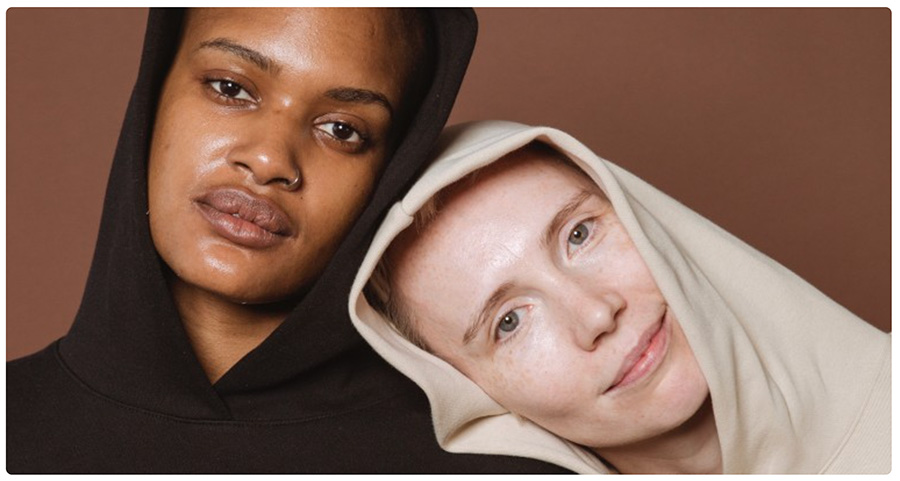
An Invited Opinion By Rainea Cumberbatch
On Oscar night, Sunday March 27th, Will Smith became the fifth African American to win the prestigious Best Actor In a Leading Role award for his portrayal as Richard Williams in King Richard. The actor won the Oscar from an academy which, in it’s 94 years in existence, has only nominated 23 Black men for this award.
We also watched Will Smith assault comedian Chris Rock, after he made a joke poking fun at Smith’s wife, Jada, who had recently shaved her head.
The entire world saw, what is now being called “The Slap heard ’round the world” and are picking sides: Will is wrong, Chris was right; comedians everywhere can’t be in fear of assault when they tell jokes, no matter the target; Will Smith has been the butt of everyone’s jokes for years and now he’s snapped and on and on. But who should really be blamed for the pivotal joke that caused Will Smith to break his well-practiced media poise and assault a fellow performer on live television? Some can point to the lack of DE&I planning large public events like the Oscars.
For large events, there are numerous teams that handle every aspect of shows: lighting, sound, visuals, where artist(s) stand to accept awards, who gives the awards, what kind of paper on which the nominees’ names are printed and the list goes on. There are also teams of writers who help the host plan their monologue and every single thing they’re going to say while hosting. The 94th Oscars is no different. So why was such a seemingly light-hearted dig at Jada Pinkett Smith met with such a harsh reaction by her husband?
Since 2018, Jada Pinkett Smith has talked about the moment she realized she was losing her hair. The actress opened up about the experience with alopecia with her mother and daughter close by, expressing how she “took pride in taking care of her hair” and “having clumps of it come out in the shower.” Alopecia, a condition used to describe hair loss, affects African American women on average more than White women and Asian women, according to a study published in the JAAD. Alopecia can be passed genetically, through aging, be the result of hormone therapies, or be the result of hairstyles with tension. Many styles popular among African American Women (braids, weaves, gel styles) can cause traction alopecia to develop.
Chris Rock’s joke, which poked fun at Jada’s bald head, was sandwiched between a long list of jokes and quips throughout the night which I’m sure were written and reviewed with the guidance of a writing team. Although Rock’s joke was unscripted, the situation still begs to ask who was in that room during planning? Who reviewed and greenlit jokes? Were there any diverse faces and backgrounds present who could have stepped in when the material was in review? A room with at least a few black faces, African Americans who keep pace with news about African American celebrities can offer perspective into the type of jokes certain audiences are familiar with.
Certain aspects of African American humor, sometimes seen as harsh or even mean to some audiences, roots itself, like so many other cultural habits, in slavery. “The Dozens”, is a game where two players (or more) insult each other until the other gives up. Playing “the Dozens” was a “test of emotional strength” as explained in a 1994 article in the Baltimore Sun. For slaves, playing “the Dozens” taught a man to survive; it taught them to take whatever the master said to them and learn to not react emotionally (physically or verbally) because any retaliation could result in harsh punishment. Telling seemingly harsh jokes has been passed down through the generations in African American culture. Through the decades, prominent African American comedians like Richard Pryor, Red Fox, the Wayans Brother, Dave Chapelle, Eddie and Charlie Murphey, and Chris Rock have worked “the Dozens” into their routines to receive critical acclaim. This routine, while well known, is not often practiced by white performers.
Historically, these award shows– The Oscars, Grammys, Tonys, etc.– have catered to majority white audiences. Many award shows tried to bar African Americans from attending shows citing strict segregation laws (think Hattie McDaniel in Gone with the Wind) and even being recognized for their contribution in their fields. However, in the past decades, since the 1960s, the Academy has allowed for more diversity for those facing outward. More actors, musicians, and artists of color are being recognized more now than in years past, and even hosting the awards shows. For African American comedians-turned-hosts (only 5 in the 94 years of the Oscars) comes their signature style of joking, reminiscent of “the Dozens.” A diverse room of writers with African Americans included, who are familiar with and can identify Rock’s signature joking style as that passed down from times past, could critique Rock’s style of humor.
Rock’s joke and Smith’s reaction sent shock waves through the mostly-white audience as they watched the now-infamous moment first hand. Many non-Black stars condemned the moment as “violent”, “embarrassing” and terrible and the Academy opened an investigation into the incident (even Smith condemned his own violence during his acceptance speech). Perhaps opening an investigation into the diversity of the writers and analysts would be a great investment as well. The point of the writing team is to assist the host with on-brand, up-to-date jokes and observations about current pop-culture events. Of the faces and voices in that room, who was present for diversity?
Rock’s 2009 documentary “Good Hair” explored the importance and self-esteem African Americans attach to their hair and then danced on a very touchy subject publicly. Although Rock had no way of knowing how deeply losing her hair affected Jada or the emotional costs she and her family dealt with privately, Will Smith’s reaction was certainly an emotional one. In future, having a few more voices in the room to provide diverse perspectives will make it more likely that comedians and hosts will be listening more closely and reading the room more effectively.
Rainea Cumberbatch is a member of the Advisory Council at CRL, a content creator/free-lance writer, and an expert in communications and international relations.




